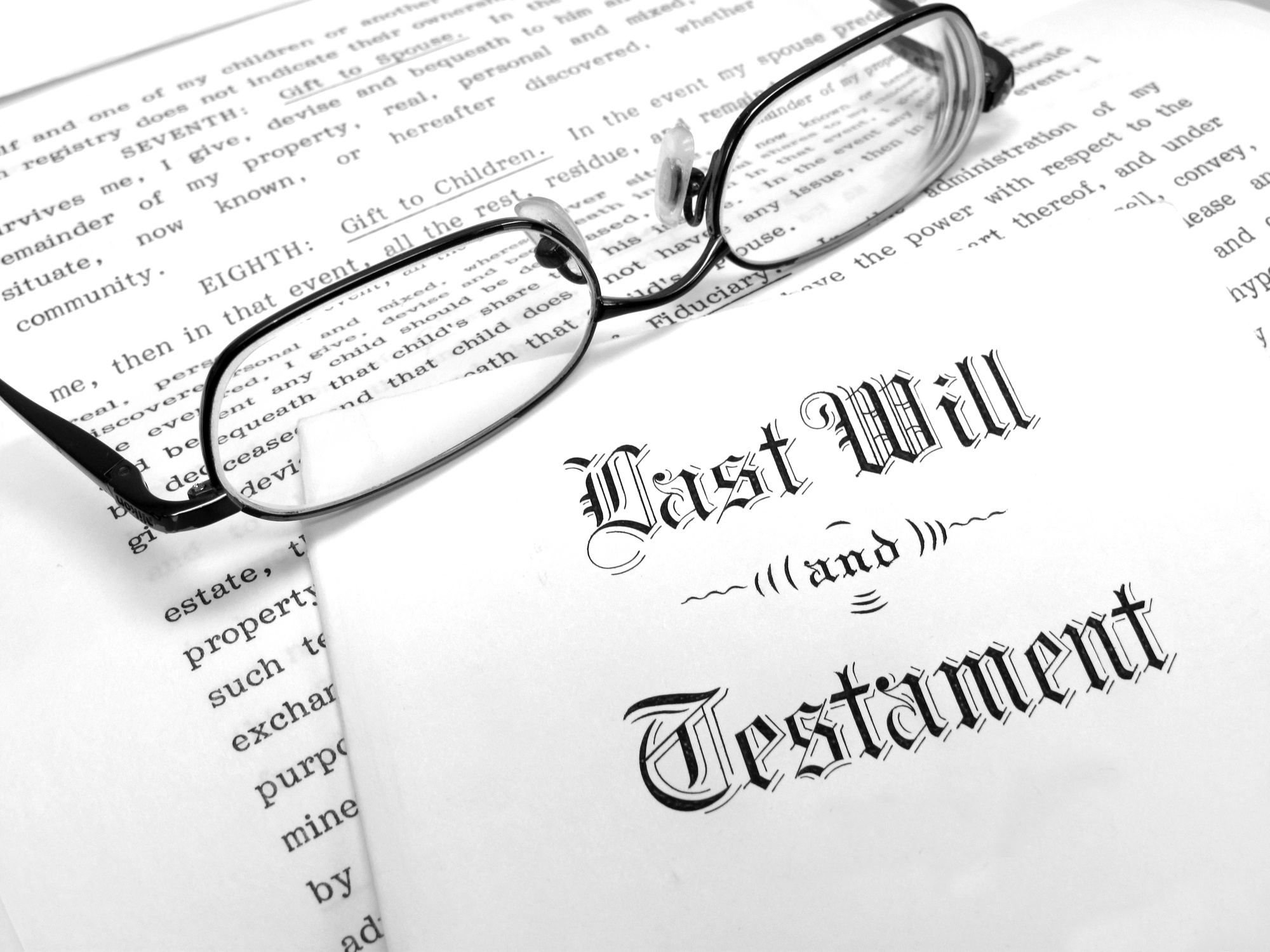Blog

Mar
Everything You Need to Know About Estate Planning for Special Needs Children
Mass Media 0 comments Blog
Everything You Need to Know About Estate Planning for Special Needs Children
Estate planning is an important step every family must take. Unfortunately, 64% of Americans have not made a will. If you’re one of them, you need to think about estate planning and get started on your plan now.
This is especially true if you have a special needs child. This adds other factors to consider when making your estate plan.
Here’s what you need to know about special needs planning.
How to Start Your Special Needs Planning
Here are the steps you need to take to complete your plan.
-
Get Organized.
You’ll need to collect information about your financials, the names of medical providers, Your child’s medical history, and any legal documents such as power of attorney or health care directives.
-
Draft a Will
You need to plan for how your special needs child is cared for should you die or become incapacitated. It is important you make sure your child is cared for in the best way possible.
This means naming a legal guardian for your child. Otherwise, it will be up to a judge to appoint someone.
-
Create a Letter of Intent
This is not a legal document, but it provides you with the opportunity to give detailed instructions to the guardian about how to care for your special needs child.
After all, nobody knows better than you what your child likes and what they need.
-
Develop a Special Needs Trust
A special needs trust ensures your child will still qualify for government benefits such as Supplemental Security Income and Medicaid.
The trust puts the guardian in control of managing the fund and taking over duties such as filing taxes. If money is given directly to the child, it will reduce or eliminate government benefits.
The trust can also supplement the government aid to provide additional income for the care of your special needs child. However, establishing the trust is complicated and the rules for setting up the trust can vary from state to state.
-
Review and Update Your Plan
Once you’ve made the plan, you still need to review it periodically and update the plan should circumstances change. Also, tax laws can change and require you to update your plan accordingly.
Updating your plan can include changing documents or rethinking how you approached the planning. This will often require the assistance of an attorney who specializes in estate planning and who understands special needs planning.
Make Your Estate Plan
Setting up your estate plan can be challenging. Special needs planning adds complexity to the process.
As much as this seems like a daunting process, working with a skilled and experienced lawyer can make a big difference.
They will know all the things you need to think about and what legal requirements exist in your state. That way you can be confident you’ve taken care of everything and your special needs child will be cared for in accordance with your wishes.
We’re here to help. As experienced estate planners, we can help you set up your estate plan.
Contact us today and we’ll get your estate planning started.

Feb
How an Estate Lawyer Can Save Your Family
Nearly 90% of families who have to deal with an estate end up in conflict over the will, no matter how soundly it’s written. The last thing you want to spend your grieving days doing is fighting with the people you love. Hiring an estate lawyer can put everything into the hands of a neutral party and leave your family to support each other.
Estate lawyers have seen every kind of conflict between family members. They’ll be able to help your family navigate the next steps and arbitrate any conflicts with the estate.
If you fear your family will end up in conflict after a loved one dies or if you’ve recently seen conflict bubbling after the death of a loved one, you need help. Here are 8 ways an estate lawyer will ensure your family avoids permanent damage to your relationship.
1. Navigating Personal Property
One of the most common conflicts between family members is over personal property. Your lawyer can generate a property list or personal property memorandum that is included with the will.
The list, once signed and dated, becomes a legal document defining who gets what. When you’re generating the list, make sure you add sufficient details for each item that is being dispersed.
2. Keeping Plans Updated
If you hire your estate lawyer soon enough, they can make changes to the plans as conflict arises. If there is a divorce, there might need to be major changes made to the estate.
If beneficiaries pass away, their inheritances will go to the next legal heir unless otherwise noted. If this person is not the preferable heir for the owner of the estate, they should change plans as soon as possible.
Should power of attorney, whether medical or financial, be still in the hands of someone who is no longer in the family, this needs to be changed. Failure to update the estate plan will lead to bizarre or unwanted results. Former spouses should be disinherited as soon as possible.
3. Special Assets
Your estate lawyer can organize a meeting to talk about any special assets the family has. If there is a disabled child or someone who is in special care, this needs to be accounted for.
For family businesses, every detail should be worked out as specifically as possible. Make changes as early as you can so as to keep other plans from being interrupted. If there’s a family vacation home, you don’t want to have to make last minute changes to your plans once the home comes under dispute.
4. Manage Any Prenuptial Agreement
If the owner of the estate has been married a number of times, multiple people could come forward to claim an inheritance. This is a common occurrence but can be easily avoided by an estate lawyer.
Make sure that a prenuptial or post nuptial agreement is struck to maintain who is owed what and at what time. This can decrease the chance of conflict following a death. Children who are not from the marriage could make a claim and a nuptial agreement could make it clear one way or the other if they’re owed.
5. Make Gifts And Loans Clear
If someone received a gift from a loved one, members of the family could claim that it was a loan and want payment from the recipient. Parents sometimes help children who are in dire financial straits.
Other children could claim that the parent should have received repayment. They can claim that the child who received the supposed loan is no longer eligible for a share of the estate.
Parents need to make clear what is a gift and what is a loan as they age. If they want their children to have a good relationship, their clarity can step in front of any conflict even after they’re gone.
Your lawyer will know to get this in writing and keep a record of any statements.
6. Keep Trusts Funded
An estate lawyer will be well experienced in managing trusts. After the death of the person who maintained a trust, it might be unclear who is responsible next. This trust could sit in limbo or be left to someone who doesn’t want to maintain it.
Taxes will be taken on the trust and need to be filed by someone. If the person who is tasked with doing that is disinterested, it could cause headaches for the whole family.
7. Resolve Joint Ownership
Sometimes parents will make their children the joint owner of assets as they age. This is a problematic method of passing along assets and can produce negative results.
If the co-owner of an asset no longer has interest in it or doesn’t want the liabilities, they could be tasked with a burden.
An estate lawyer knows better. They’ll make sure any assets are put into a trust. If a co-owner claims bankruptcy or gets into legal trouble, the asset could also be thrown into conflict.
8. Manage Funeral Details
An estate lawyer will make sure that details are laid out immediately following death. Emotions can be high at that moment and having a clear plan is the best way to avoid conflicts.
Spouses from previous marriages might claim ownership over the funeral details or of determining where the deceased will be buried. This will cause distress for families and cause mountains of conflict at a stressful time. Hiring a lawyer in advance will ensure you can avoid these problems.
Hire an Estate Lawyer for Peace Of Mind
Most people think they’ll be level-headed when death occurs. Sadly we’re never as composed as we wish we were in those moments. Hiring a lawyer in advance will ensure that much of the financial path ahead is already laid out.
If you’re ready to hire a strong and sympathetic lawyer for your estate, contact us for more information on how to find one.
